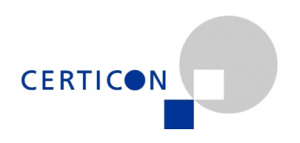What employees want is shifting toward areas that employer branding covers
2.11.2017Company: Amcham
Insight from the Human Resource Committee
Randstad runs an annual global survey of employee expectations. Czech General Manager Hana Pullova discusses the survey and what these changes mean for employers.
Historically, employees have emphasized compensation and job security heavily. Does your survey show that this is changing?
“We see a continuous shift in expectations over the past few years. Attractive salary, long-term job security, and the financial health of the company are still among the most important; salary remains the one expectation shared by over half of the respondents. Yet, each of these categories is continuously less important to employees than it was in 2014. And other categories of expectations are continuously rising.”
For instance?
“The desire for a workplace that has diversity and inclusion has risen from 11% to 15%. Working for a company with a good reputation also increased in importance from 16% to 20%. That the products and services of the company are something that the employee or surrounding community values also become more important, as well as whether the company cares about the environment or gives back to the local community. I should note that many of these categories also were considered by employees as the least important attributes of an employer; for instance, one in three respondents said that diversity and inclusion did not affect their decision. Nevertheless, I think we can see that relying only on salary and job security is increasingly going to make a company less competitive.”
Does gender or age play a role in what the respondents defined as important?
“Yes. Age is a factor when it comes to long-term job security. For both women and men, this expectation increased in importance for people aged 45 and over. For individuals aged 25-44, men placed an emphasis on career prospects, while women chose flexible work arrangements. This could be a sign that traditional family roles still have a major influence on how individuals chose to be employed.”
How does employer branding help companies address any gaps between what employees expect and what companies deliver?
“There is one easy answer: companies with attractive brands receive 50% more application than those with negative brands, and companies with bad brands tend to spend 10% on employees. But there is more. 87% of respondents say they have joined a company because of a cultural fit, and 80% say they have left a company because they did not like the company culture. And that should increase: 88% of millennials and minorities say that company culture is very important to them. Your employer brand is going to be a more and more important variable in the equation of how to attract and retain the best talent. But still the most important is to focus on the right company culture and the reputation on the market will be spread naturally. ”
Tags: Human Resources |







